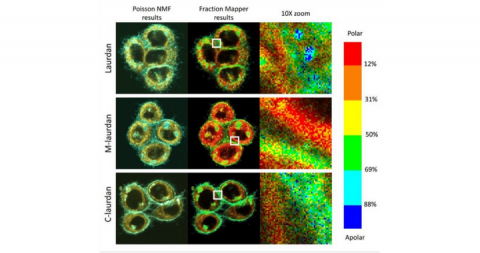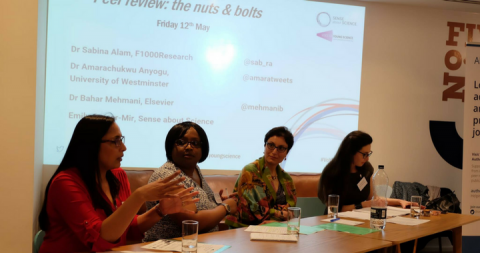A systematic review by Tony Ross-Hellauer, University of Gottingen, Germany, tries to resolve the ambiguity surrounding open peer review by providing more than a 120 definitions. It was openly peer reviewed by Bahar Mehmani, from Elsevier, RELX Group. In this blog, both explain why there can’t be a single precise definition for open peer review and instead communities should clarify their meaning by naming specific traits, such as open identities, open reports or open platforms, to minimise confusion.
We highlight the top F1000Prime recommendations each month. For July, we take a botanical twist with our highlights in honour of a 140 million year old bloom, as well as highlight the top recommended and Hidden Jewels articles for last month
Two research groups published their data articles about the sugarcane genome. They explain the crop’s economic importance and the scale of the challenges involved in sequencing its genome.
Eitenne Joly is a research scientist and F1000Prime Faculty Member. In this guest blog, he talks about his area of research and his recent article in F1000Research about the physical state of membranes in live cells.
F1000Research author, Roberto Perez-Torrado, talks about the importance of wine yeasts and the optimum temperature to create the perfect wine aroma.
A summary about Sense about Science’s peer review workshop, which was held earlier this summer in London. The event started with some group work to get the discussion going and was then followed by a great panel discussion on the process of peer review in journal publishing.
Hollydawn Murray recently attended the Galaxy Community Conference in Montpellier in France. She gives us a run down of the talks and topics that caused a buzz while there.
Today is International Tiger Day, a day dedicated to raise awareness for a species on the brink of extinction. We discuss the challenges faced by conservationists and the recommended research on recovery programmes.
For World Hepatitis Day, F1000 Prime Faculty Member Ralf Bartenschlager, a molecular and cell biologist heading a virology research team at Heidelberg University and the German Cancer Research Center, discusses the most urgent needs to meet global viral hepatitis targets.
In this post, our Editorial Director, Sabina Alam, explores what is meant when control is passed over to the authors. This is a position that many authors may not have found themselves in before so Sabina outlines some of the main aspects of the peer review process that F1000Research authors experience.

















